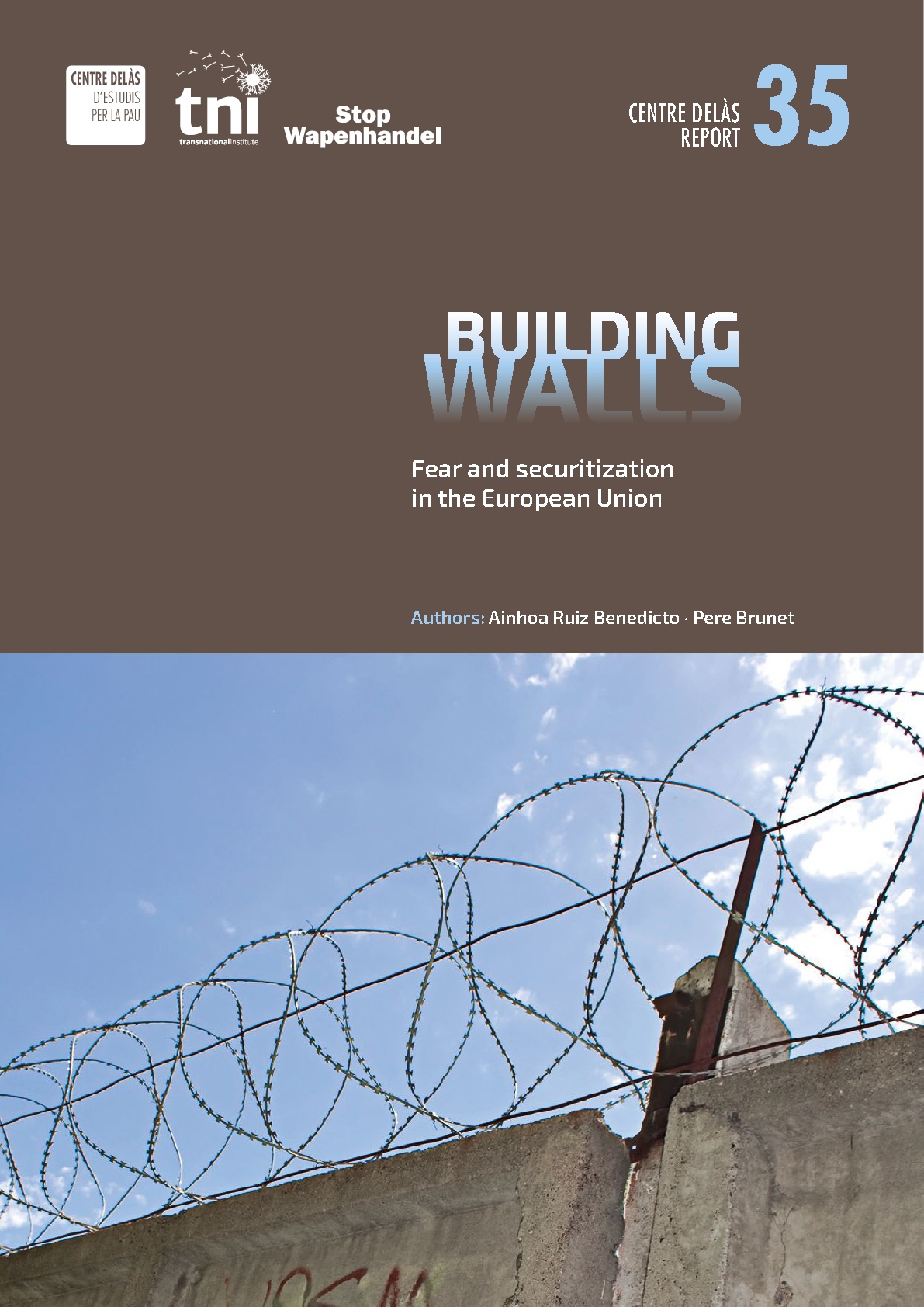Report 35: Building Walls. Policies of fear and securitization in the European Union
![]()

Building Walls. Policies of fear and securitization in the European Union
This report published by Delàs Centre of Studies for Peace, Transnational Institute (TNI) and Stop Wapenhandel, reveals that member states of the European Union and the Schenghen area have constructed almost 1000 km of walls, the equivalent of more than six times the total length of the Berlin Walls,1 since the nineties to prevent displaced people migrating into Europe. These physical walls are accompanied by even longer ‘maritime walls’, naval operations patrolling the Mediterranean, as well as ‘virtual walls’, border control systems that seek to stop people entering or even travelling within Europe, and control movement of population. Europe has turned itself in the process into a fortress excluding those outside– and in the process also increased its use of surveillance and militarised technologies that has implications for its citizens within the walls.
Europe’s building of walls, closing borders, increasing surveillance and securitisation, and increasing suspension of free flows of people is creating a Fortress Europe. The stated goal is to increase security against a supposed threat, but in the end it is creating a more dangerous situation for the life and rights of people inside Europe and beyond.
Authors: Ainhoa Ruiz Benedicto and Pere Brunet
Editors: Jordi Calvo and Nick Buxton (TNI)
You can download the executive summary in English, in Spanish, in German, in Dutch, and in Catalan, and the full report in English, in Spanish and in Catalan.
Tags: Seguretat i defensa
















